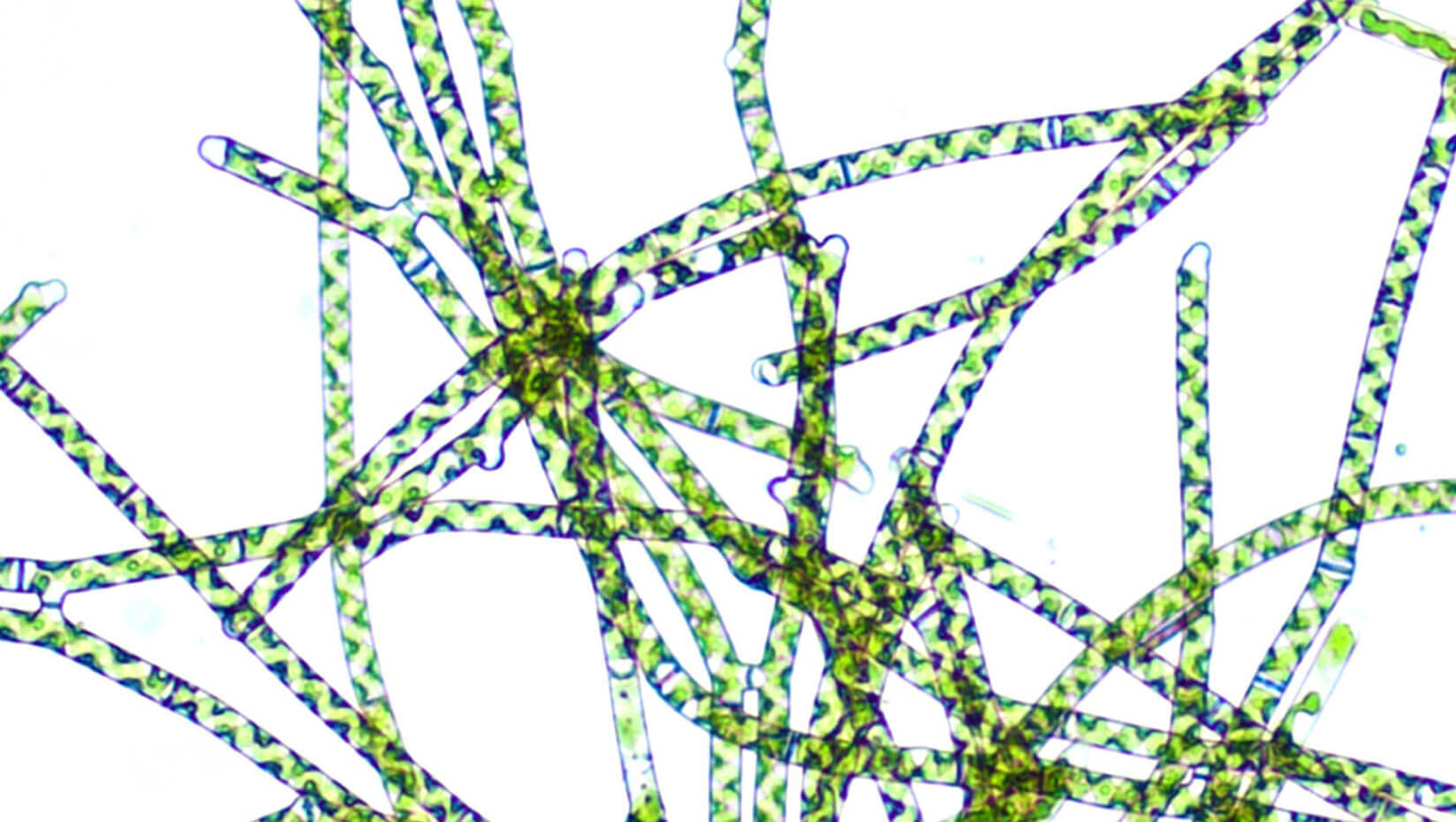
Innovative class lab during pandemic earns international attention from Phycological Society of America
At the University of Maine, SMS 373 — Marine and Freshwater Algae — is a four-credit course that provides a comprehensive introduction to the evolution, ecology, and physiology of these diverse photosynthetic organisms.
School of Marine Sciences Professor of Plant Biology Susan Brawley has been teaching the course for 12 years. This past spring, she was joined by teaching assistant Kyle Capistrant-Fossa, a recent UMaine graduate and a research assistant in Brawley Lab.
As usual, the course emphasized the fundamental roles of the algae in shaping the evolution of other life on Earth and determining characteristics of different ecosystems and food webs. Laboratory work emphasized the study of living material in the first half of spring 2020, with the second half of the laboratory normally devoted to algal isolations and culture from natural habitats, field trips, and special research projects.
Then the pandemic hit, and SMS 373, like all UMaine courses, went remote in the second half of the semester.
The result was innovative course delivery that was one of the 10 winning entries from members, according to the Phycological Society of America (PSA).
The PSA Education Committee is dedicated to the promotion and improvement of teaching and research in phycology. Its first #TeachAlgae contest drew 27 entries from around the world. The winners and a selection of their submitted resources are online.
“Our exercise let students continue to learn the techniques I’d planned for the first weeks after spring break by providing a way for students to isolate pure algal cultures at the many different locations they were at after spring break. Also, it maintained class interest and spirit as we shared results for a few minutes at the beginning of each Zoom lecture. Every time a student reported that a likely algal colony had appeared on their plates, we all got excited! ” says Brawley. “I’m sure lots of people will use this exercise.”
UMaine’s contest-winning initiative, “Remote Isolation (of algae as well as people)”, focused on active studies of natural communities of algae through independent work by students — wherever they were sheltering under COVID-19 conditions. This contributed to comparative studies across ecosystems, and just seeing the range of pH values from marshes, rivers, and streams across the U.S. was interesting.
Brawley and Capistrant-Fossa assembled kits containing the lab materials needed for the 18 students to make isolations on solid plates and transfer individual colonies that developed to liquid cultures. Those colonies, incubated on window sills, were sent back to campus to be photographed. Students also took photos of the bodies of water and habitats where they collected their samples, and made environmental measurements, including the pH, nitrate, and nitrite at their collection sites. Students prepared a few PowerPoint slides each that covered their isolations and data, and Brawley and Capistrant-Fossa put it together as an Atlas of Spring Algae. An excerpt of this Atlas appears in the winning exercise, so that users know what can be achieved. Brawley said, “We all learned so much together!”
By following the detailed instructions in the kits, and following online discussions, nearly two-thirds of the students achieved successful isolations, say Brawley and Capistrant-Fossa. The ones who did not still had excellent habitat information and isolation experiences to share.
Understanding the learning outcomes needed and then determining the methods to achieve that learning were key, making the initiative a valuable lesson in teaching phycology.
“Students seemed to really enjoy the course, and it helped us stay connected while spread across the U.S. from COVID-19,” says Capistrant-Fossa. “It taught me the importance of being able to adapt a course quickly, and how important labs can be for class morale.”
Capistrant-Fossa, who is originally from West Springfield, Massachusetts, was an Honors student who graduated in 2 1/2 years with a bachelor’s degree in marine sciences and earned a master’s in marine biology, both from UMaine. In Brawley’s lab, his research focused on the spread of an invasive red alga, Grateloupia turuturu, in Maine, and bacterial communities associated with Maine’s rockweeds.
This fall, Capistrant-Fossa begins his Ph.D. work on a five-year assistantship at the University of Texas, based at the Marine Science Institute in Port Aransas. His adviser will be UMaine alumnus Kenneth Dunton.
Contact: Margaret Nagle, nagle@maine.edu
